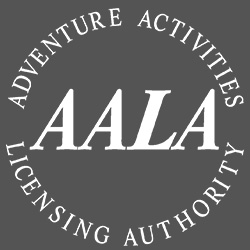The outdoor environment has long been recognised as a way of developing young people, but we will also be looking for them to learn even more practical skills that we can certify. This is sometimes referred to as Outdoor Therapy – Project DARE in Canada has been using the wilderness and outdoor therapy for 30 years in the development of young offenders who are sent there on a custodial order for a minimum of 45 days with a preferred placement duration of 120 days (Russell 2004), as an alternative to other forms of custodial sentence. Research showed a reduction in re offending from a control programme figure of 51% to 37% from this one style of intervention. (Goodstein and Sontheimer,1987).
Eagle House has used outdoor therapy as a medium to teach life skills experientially and to develop young people’s attitudes, confidence, respect, motivation and sense of achievement on all our programmes that we deliver. This will be continued and developed upon in the YAP programme. The YAP programme mixes the proven results of outdoor therapy with the development of social and interpersonal skills through practical experience and learning. A unique mixture of motivation, respect, confidence, and trust will be produced.
Our programmes work on a praise environment and include elements of restorative justice, we will always be looking for achievement no matter how small to recognise and celebrate. This engenders a feeling of wellbeing in the young people as we all enjoy praise, but just as important, these young people need to experience achievement, to know and believe it is not just for others, as recognised by Byam in his book the Lightening of Empowerment (1999). We actively seek out and use positive and negative situations that arise and turn them into a learning and development experience.
In “Every Child Matters “(DfES 2004b) the Government set out a framework of outcomes to which every child should be entitled. This gave a practical commitment to the idea that whatever their background or circumstances, every child should have the support they need to “enjoy and achieve”, “make a positive contribution”, “achieve economic wellbeing” “be healthy” and “stay safe” (Margo and Dixon 2006). We will, using a residential environment, work with the young people in order to support them in starting to develop the skills they need to begin their journey into, and achieve, the transition into an independent adult life.
“Every Child Matters” notes the majority of young people seem to be flourishing, making good the many and varied choices they now have to continue education, contribute to society and their community. But at the same time a particular group of young people, those from disadvantaged backgrounds, are consistently and increasingly failing, explaining at least in part the growing public sense that young people are “in crisis”.
It is Eagle House’s vision to work with those young people and ensure that they are given the chances that they richly deserve.




